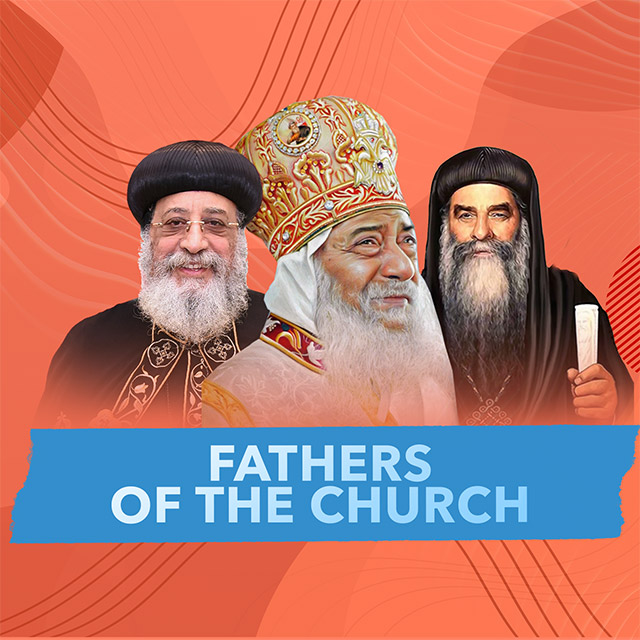The Holy Scripture, in both the Old and New Testaments, does not leave us in confusion regarding this matter. Death does not erase our identity or personality. This truth was clarified by the Lord of Glory Himself in His response to the group of Sadducees among the Jews who denied the resurrection of the dead (Matthew 22:23–33).
Also, in His words:
“But concerning the resurrection of the dead, have you not read in the book of Moses, in the passage about the burning bush?”
(Mark 12:18–28 and Luke 20:27–40)
⸻
1. In the Old Testament:
We find clear indications that the soul continues its existence in the afterlife, retaining its identity, selfhood, and personality. This is evident from the following:
(a) (1 Samuel 28): Samuel is the same person—one identity, one being. Death did not alter or annihilate his self or person. He had simply left the body and entered a broader realm of experience.
(b) (Isaiah 14:9): “Hell from beneath is excited about you, to meet you at your coming.” These words were addressed to the king of Babylon and were a prophecy concerning Israel’s return. It shows that after the soul departs from the body, it retains its capacity for knowledge.
(c) (2 Maccabees 15:15–16): “Jeremiah stretched out his right hand and gave Judas a golden sword, saying: Take this holy sword, a gift from God, with which you shall crush the enemy.” This shows that the soul after death still maintains its connection with the living.
⸻
2. In the New Testament:
It becomes even more evident that the soul, in the afterlife and after its separation from the body, enjoys greater freedom, deeper knowledge, and a state better than its earthly condition. This is shown in the following:
(a) (Luke 16): The story of the rich man and Lazarus.
This story provides the greatest evidence of the life of the soul and its condition in the afterlife:
1. The soul is in a state of full consciousness.
2. It has complete awareness of its existence.
3. It recognizes the presence of other souls.
4. It is aware of those still living on earth.
5. It becomes more transparent, insightful, and capable of reaching its aims.
6. Time is irrelevant to it.
7. Physical distances are no obstacle.
8. It is unaffected by spatial limitations.
9. No material barriers can hinder it.
10. No hardships can obstruct it.
11. This applies to both righteous and evil souls.
12. The soul retains all its life experiences in the afterlife.
13. It carries with it everything it possessed in its human self, except the physical body, from which it is separated by death.
14. It continues to exercise its intellectual and volitional faculties.
15. Memory remains, along with all human thoughts, intentions, and actions. Even though many of these may no longer be useful in the afterlife, they do not vanish but remain until the Day of Judgment, when all a person has thought and done will be presented before him.
(b) (John 11:1–45): The raising of Lazarus from the dead.
(c) (Luke 23:33–43): Jesus’ words to the thief on the right:
“Today you will be with Me in Paradise.”
The Lord said “you will be,” meaning he would retain his identity, selfhood, and personality.
(d) (John 21:1–14): Jesus appeared to His disciples for the third time after His resurrection by the Sea of Tiberias. When John the beloved saw Him, he exclaimed, “It is the Lord!”—for Christ retained the same identity.
(e) (Revelation 14:13): “Then I heard a voice from heaven saying to me, ‘Write: Blessed are the dead who die in the Lord from now on.’ ‘Yes,’ says the Spirit, ‘that they may rest from their labors, and their works follow them.’”
Thus, human life and deeds after death remain with the soul and follow it.
(f) (Revelation 6:9–11):
“When He opened the fifth seal, I saw under the altar the souls of those who had been slain for the word of God and for the testimony they held. And they cried with a loud voice, saying…”
Each of them was given a white robe, and it was said to them that they should rest a little while longer—apart from the connection with the body and physical matters, which had been left behind at death.
⸻
3. In summary and in addition to the above:
(a) The soul in the afterlife enjoys broad knowledge.
(b) Memory grows stronger and thoughts are processed with wisdom, without weakness or forgetfulness.
(c) A person retains the emotions he had in earthly life (Luke 16:27–28).
(d) The soul is aware of the state of its loved ones still on earth, receiving such knowledge either through angels (Genesis 28:12) or through newly departed human souls (Luke 15:7–10).
(e) Souls hasten to assist humans (2 Maccabees 15:2): “I saw Onias the high priest…stretching out his hands and praying for the whole body of the Jews.” This is evident in the practice of seeking the intercession of saints and martyrs.
(f) Souls recognize one another and communicate mentally (Luke 16:24; Luke 1:3).












